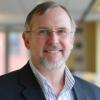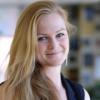Focal point
Location
World Resources Institute
The World Resources Institute is a global environmental think tank that goes beyond research to put ideas into action. We work with governments, companies, and civil society to build solutions to urgent environmental challenges. WRI’s transformative ideas protect the earth and promote development because sustainability is essential to meeting human needs and fulfilling human aspirations in the future.
WRI spurs progress by providing practical strategies for change and effective tools to implement them. We measure our success in the form of new policies, products, and practices that shift the ways governments work, companies operate, and people act.
We operate globally because today’s problems know no boundaries. We are avid communicators because people everywhere are inspired by ideas, empowered by knowledge, and moved to change by greater understanding. We provide innovative paths to a sustainable planet through work that is accurate, fair, and independent.
Resources
Displaying 91 - 94 of 94AGRI3 A Forest Conservation and Sustainable Agriculture Fund for Developing Countries
Objectives
AGRI3 will de-risk USD 1 billion of private sector financing and provide USD 15 million in technical assistance for forest conservation, restoration and sustainable agriculture in developing countries and emerging markets to address climate change and land degradation.
Other
Note: Disbursement data provided is cumulative and covers disbursement made by the project Agency.
Target Groups
Sustainable agriculture and forestry can help farmers to realize short-term and long-term economic benefits. According to the FAO, there is a direct positive correlation between growth in agriculture and the eradication of hunger and poverty.Agriculture is on average twice as effective in reducing poverty as non-agriculture sectors, and five times more effective than other sectors in resource poor low-income countries.However, the current trajectory of growth in agriculture is unsustainable and the negative environmental impacts from agriculture could increase 50-90% by 2050. To reverse this trajectory, there is a need for more investment into sustainable agriculture. This investment is crucial to increasing food production to meet growing demand, improving the access of vulnerable people to food, and by stabilizing markets so that prices are affordable for consumers and remunerative for producers.Investments in agriculture can improve the resilience of rural incomes and livelihoods by addressing climate change, conserving natural resources and facilitating the transition to sustainable agriculture. A key component of the Fund is improving rural livelihoods and farmers are the ultimate beneficiaries of all transactions related to the Fund. Each transaction should have a strong focus on improving rural livelihoods and the project’s Result Framework specifies that at least 300,000 farmers and farm workers will be trained in sustainable forest management and sustainable agricultural practices. The Fund will help transition farmers to climate-smart agricultural practices which helps to address the interconnected challenges of climate change and food security. Climate-smart agriculture can help increase productivity (e.g., from improved water and soil conservation), it can help enhance farmer resilience (e.g., via agricultural practices to reduce vulnerability to drought, pests, diseases and other climate-related shocks) and reduce emissions (e.g., increasing carbon sequestration through improved soil health and avoiding deforestation).Through this model the Fund is aiming to achieve the following key outcome targets over twenty years. These targets are all based on average figures from six selected case studies, and multiplying this average by AGRI3’s targeted number of transactions (see Appendix XVIII for more details):87,000 hectares of degraded land restored (contributing to GEF Core Indicator 3.1)41,000 hectares of forest under improved management (contributing to GEF Core Indicator 4.1)700,000 hectares of agricultural lands under sustainable management (contributing to GEF Core Indicator 4.3)18,400,000 tCO2eq of carbon emissions avoided/ sequestered (Over 20 years - contributing to GEF Core Indicator 6.1) 300,000 farmers and farm workers trained, 30% of whom are female(contributing to GEF Core Indicator 11).
South Africa - Operationalizing Community-Driven Multiple-Use Water Services Project
General
The Operationalizing Community-Driven Multiple-Use Water Services is initiated to increase levels of investments in multiple-use water services (MUS) . The project will also contribute to increased annual rates of Gross Domestic Produc (GDP) growth (3.0% per annum by 2020) and achievement of the national target for creating jobs for 300,000 households in agricultural smallholder schemes. Its impact will be improved income generation and community health in poor rural and peri-urban communities in South Africa. This project will be implemented for a total duration of 48 months and its total cost is estimated at € 1,745,059, of which the AWF will finance € 1,340,000 (77%). The Project will deliver three (3) key outcomes: (i) optimized water resources development and management for improved service delivery; (ii) improved local water use planning and management; and (iii) increased investments in improved community water services delivery.
Objectives
The purpose of the project is to support the operationalization of Multiple-Use Water Services (MUS) services in the Republic of South Africa (RSA) through demonstration investments, awareness raising, applied research and leveraging of finance.
Target Groups
The direct beneficiaries of the project include (i) households and local communities in Sekhukhune District and Vhembe District; (ii) local government and district government agencies benefiting from planning support and prepared planning tools and manuals, and (iii) national water sector policy makers and government agencies (Department of Cooperative Government and Traditional Affairs, Department of Water Affairs, Department of Agriculture and Forestry, Department of Rural Development and Land Reform; Department of Human Settlement; Department of Public Works; South African Association of Local Authority).
Leading the Change: Civil Society, Rights and Environment: WWF Cameroon
General
Problem and context description
Cameroon is endowed with rich natural resources. However, human development is low and the poverty rates remain high. Poor governance and lack of livelihood opportunities risk making communities both victims and agents of nature degradation. Rapid deforestation and forest degradation, poaching and illegal trade in wildlife, and a wide range of other social norms and habits are decreasing the possibilities for people to use their surrounding natural resources in a sustainable way to reduce poverty.
The Cameroon land law as well as different sectoral laws give the State the ownership of all lands that were unregistered before 1974 and the resources therein. This undermines the traditional tenure rights which local communities and especially indigenous groups rely on to access forest resources. This is further compounded with the creation of protected areas which restrict, except under agreed conditions, the access and user rights of these communities. Apart from indigenous groups, youth and women/girls are highly affected. Traditional structures overseeing customary and local rules often reinforce gender- and age-based discrimination, and new restrictions and conflicts tend to affect the vulnerable groups the most.
Local community organisations like Village Forest Management Committees play important roles in rural communities, but they do not always have the interest or the capacity for management of forests or protected areas, and restrictions push them into conflicts. There are CBOs and CSOs with high capacity in the targeted programme areas, not least amongst the partners of WWF, and interesting coalitions have been formed during recent years. WWF Cameroon seeks to take this work and these initiatives further and find ways to scale up promising models of sustainable natural resource management and to change policies through effective civil society, youth and indigenous people action.
Programme goals
The desired change is that local communities and indigenous people in Cameroon are effectively exercising their rights (ownership, access and use), controlling decisions and equitably receiving benefits from natural resources, and contributing to the sustainable management of terrestrial ecosystems.
Programme activities
There will be ongoing capacity development to strengthen CSOs and promote their role as advocators for sustainable management and sustainable investments. The supported CSOs will work to empower local rural communities and local committees and enhance their capacity to manage and benefit from natural resources. The support to communities will include for example human-wildlife conflict controls, ecotourism development, wildlife law enforcement and support for sustainable livelihood initiatives to improve food security, promote sustainable agriculture and reduce ecological footprints.
The programme also includes the implementation of a REDD+ mechanism in the Korup area and education on different levels in society to raise awareness on climate issues and resilience. The programme will use the inclusive approaches of Education for Sustainable Development (ESD) and continue to collaborate with schools to reach the youth.
Objectives
Degraded Land Mapping for Kalimantan and Papua provinces
General
The project aims to ensure decision makers (in public and private sector) implement policies to support socially equitable oil palm expansion onto low- carbon degraded land and reduce conversion of forested areas. The programme will address critical governance questions around how to grant access to suitable land, how to revoke permits, how to change land status and how to involve local people in decisions where their rights are affected. On-the-ground community mapping will work with local people to evaluate what livelihood options exists in the area, and thus what is the best way to deliver a poverty-reducing forest management approach.






